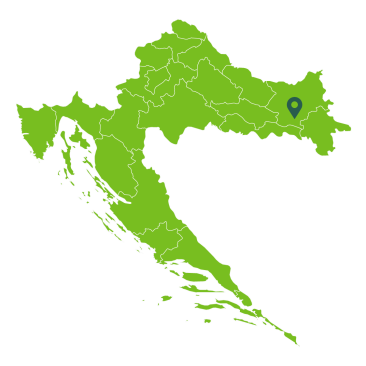
About the FSC certificate holder
Sunčane šume d.o.o. (English translation of the name of this company is "Sunny Forests") is a forest management company and a holder of FSC FM/CoC certification. It was founded in 2010, has its headquarters in the city of Đakovo (Croatia) and is constantly growing in size and the volume of work. The company manages 9 700 hectares of private forests and forest land owned by the Đakovo-Osijek Archdiocese and the Andabak family. The forests are managed through the cooperation with interested local communities and associations for the benefit of the larger community, while the company also directly contributes to the halt of local population emigration through employment (currently it employs 43 people from local rural area).
In 2012, Sunčane šume requested the certification of the entire forest management area for the first time, and on March 14 of the same year, after a successful forest management audit, the company received its first FSC certificate and simultaneously became the first private FSC-certified forest management company in Croatia. From the very beginning, Sunčane šume have demonstrated an exceptional commitment to the values of the best practice in protecting the precious Croatian forests, and this year they are already celebrating 10 years of their forest management according to FSC principles and criteria.
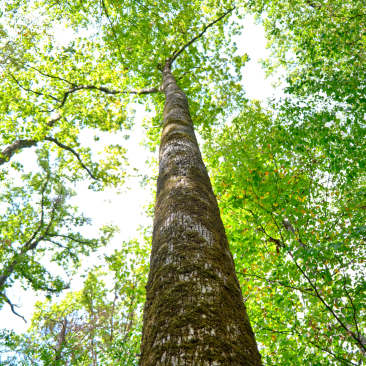
About the certified forests
Planned management of these forests was initiated in 1897, when the first management program with prescribed works has been completed. Sustainable management of forests (meeting the economic, ecological and social forest functions) has contributed to the fact that today in this area there are natural mixed forests with rich flora and fauna. The most common tree species include sessile oak (Quercus petraea), common beech (Fagus sylvatica L.) and hornbeam (Carpinus betulus).
As the result of this long term management, most of the forests (about 6 500 ha) belong to the Natura 2000 network in order to maintain natural habitats and provide habitat conditions for more than 50 protected and strictly protected plant and animal species, including the white-tailed eagle (Haliaeetus albicilla), yellow-bellied toad (Bambina variegata), Bechstein's bat (Myotis bechsteini) and the Balkan goldenring (Cordulegaster heros).
NOTE: To ensure compliance with the FSC principles for forest management as it regards biodiversity conservation, the company has developed and issued the Handbook for identifying endangered and strictly protected species of flora and fauna. This pocket-friendly handbook is used by the employees for on-site species identification.


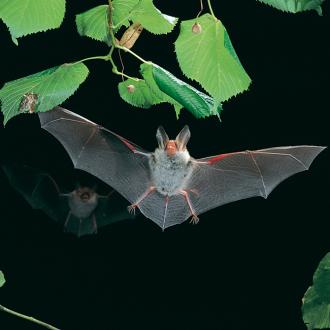
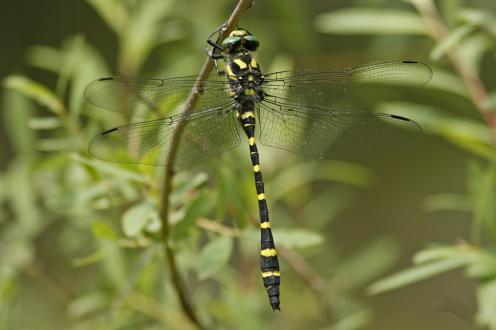
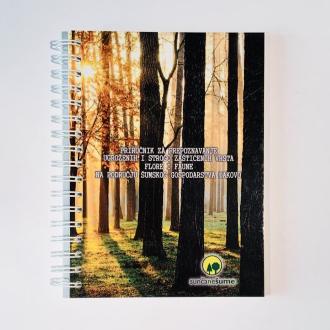
Adult white-tailed eagle (Haliaeetus albicilla)
Yellow-bellied toad (Bambina variegata)
Bechstein's bat (Myotis bechsteini)
Balkan goldenring (Cordulegaster heros)
Handbook for identifying endangered and strictly protected species of flora and fauna

About the benefits of FSC FM certification
A forestry engineer and the main person responsible for the FSC certification within Sunčane šume - Marko Katičić shared with us their view on the benefits of FSC forest management certification:
"We made the decision on forest certification according to FSC principles and criteria because an FSC certified forest is a value in itself, and it is a confirmation that the forest owner consults the public, reduces damage from felling and takes measures to protect soil and water resources, takes care of the protection of wild plant and animal species, protects ecologically sensitive habitats, respects the customary rights of the local community, etc.
In order to successfully meet the strict criteria set by the FSC certification, we trained our employees and issued a Manual for the identification of endangered and strictly protected species of flora and fauna (as seen above in the article). In cooperation with the local community, we have declared four sites of high conservation value forests where low-intensity forestry works are carried out and every year we monitor the criteria on the basis of which these stands are selected are carried out.
Obtaining the FSC certification and its renewal for us as the first private forest management company in the Republic of Croatia is a great success and confirmation of the orientation of Sunčane šume towards sustainable management of forest resources entrusted to our management."
About the FSC FM certification process
Prior to issuing the FSC FM certification, an independent certification body needs to perform a pre-evaluation to verify the management system of the applicant for FM certification and to conduct a gap analysis and public consultation. After that, the main evaluation is performed, which includes an audit of the management system, site audits, interviews, and stakeholder consultation. When the certification decision is positive, the certificate is issued for a five-year period. Surveillance evaluations are then conducted once a year, which include desk audits, site visits, interviews and stakeholder consultations. After the expiration (five years) of the certification, it is necessary to perform the re-evaluation following the same procedures as the main evaluation, so that the certification may be reissued for a further period of five years.
For more detailed information on the structure of the FSC certification system, click here.
On March 14, 2012, after a successful forest management audit, the certification body issued a positive decision on the certification of almost 10,000 hectares of forest area managed by Sunčane šume.
After the expiration of the first five-year certification period, Sunčane šume again requested FSC FM certification and thus extended the duration of certification for additional five years.
In March 2022, Sunčane šume successfully passed its 11th forest management audit, thus beginning the third five-year certification period and extending the validity of its FSC FM certification. Sunčane šume have successfully maintained FSC certification for 10 consecutive years.
About the responsible forest management
There are 10 FSC principles that any forest operation must adhere to before it can receive FSC forest management certification. These principles cover a broad range of issues, from maintaining high conservation values to community relations and workers’ rights, as well as monitoring the environmental and social impacts of the forest management.
It is important to remember that sustainable forest management requires sustainable harvesting. This is done according to the forest management plans and has to take different factors into consideration. Leaving the forest untouched is not a viable option in a world where people put pressure on forests in many ways.
Learn more about FSC principles and criteria in the Interim standard for forest management in Croatia here.

-
Principle 1: Compliance with laws
The Organization shall comply with all applicable laws, regulations and nationally-ratified international treaties, conventions and agreements.
-
Principle 2: Workers' rights and employment conditions
The Organization shall maintain or enhance the social and economic well-being of workers.
-
Principle 3: Indigenous peoples’ rights
The Organization shall identify and uphold indigenous peoples’ legal and customary rights of ownership, use and management of land, territories and resources affected by management activities.
-
Principle 4: Community relations
The Organization shall contribute to maintaining or enhancing the social and economic well-being of local communities.
-
Principle 5: Benefits from the forest
The Organization shall efficiently manage the range of multiple products and services of the Management Unit to maintain or enhance long term economic viability and the range of environmental and social benefits.
-
Principle 6: Environmental values and impact
The Organization shall maintain, conserve and/or restore ecosystem services and environmental values of the Management Unit, and shall avoid, repair or mitigate negative environmental impacts.
-
Principle 7: Management planning
The Organization shall have a management plan consistent with its policies and objectives and proportionate to scale, intensity and risks of its management activities.
The management plan shall be implemented and kept up to date based on monitoring information in order to promote adaptive management. The associated planning and procedural documentation shall be sufficient to guide staff, inform affected stakeholders and interested stakeholders and to justify management decisions. -
Principle 8: Monitoring and assessment
The Organization shall demonstrate that progress towards achieving the management objectives, the impacts of management activities and the condition of the Management Unit, are monitored and evaluated proportionate to the scale, intensity and risk of management activities, in order to implement adaptive management.
-
Principle 9: High conservation values
The Organization shall maintain and/or enhance the high conservation values in the Management Unit through applying the precautionary approach.
-
Principle 10: Implementation of management activities
Management activities conducted by or for the Organization for the Management Unit shall be selected and implemented consistent with the Organization’s economic, environmental and social policies and objectives, and in compliance with the Principles and Criteria collectively.

